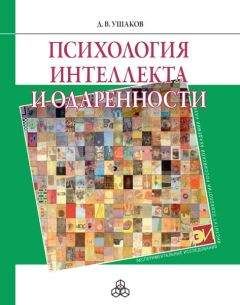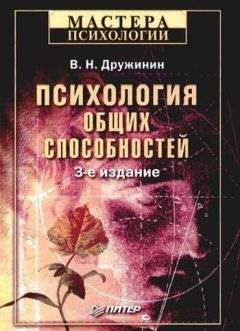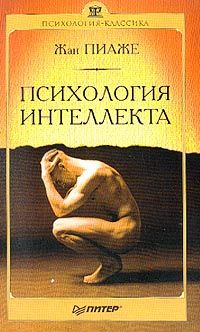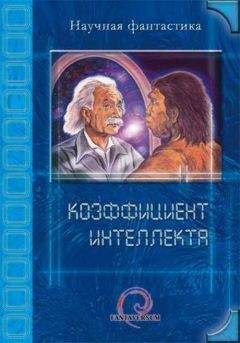Ознакомительная версия.
Ушаков Д. В. Психология одаренности и проблема субъекта // Проблема субъекта в психологической науке / Ред. А. В. Брушлинский, М. И. Воловикова, В. Н. Дружинин. М.: Академический проект, 2000. С. 212–226.
Ушаков Д. В. Психология интеллекта: структурно-динамическая теория. М.: Изд-во «Институт психологии РАН», 2003.
Ушаков Д. В. Тесты интеллекта, или горечь самопознания // Психология. Журнал высшей школы экономики. 2004. № 2. С. 76–93.
Флейвелл Дж. Генетическая психология Жана Пиаже. М.: Просвещение, 1967.
Хайликс В. А. Языковые способности и внутренний мир высших животных. Начало исследований и основные темы // Иностранная психология. 2000. № 13. С. 1–17.
Хакен Г. Принципы работы головного мозга. М.: Пер Сэ, 2001.
Халфорд Г. С. Высшие когнитивные процессы: знания, построенные на отношениях объектов // Иностранная психология. 1997. № 8. С. 44–51.
Хекхаузен Х. Психология мотивации достижения. СПб.: Речь. 2001.
Хекхаузен Х. Мотивация и деятельность. СПб.: Питер; М.: Смысл, 2003.
Хеллер К. А., Зиглер А. Различия между мальчиками и девочками в успеваемости по математике и естественным наукам: может ли переориентация улучшить результаты одаренных школьниц? // Иностранная психология. 1999. № 11. С. 30–40.
Холодная М. А. Структурная организация индивидуального интеллекта: Дис. … докт. психол. наук. М.: МГУ, 1990.
Холодная М. А. Психология интеллекта: парадоксы исследования. Томск: Изд-во Том. ун-та; М.: Барс, 1997.
Холодная М. А. Принципы и методы выявления одаренных детей // Одаренность: рабочая концепция / Отв. ред. Д. Б. Богоявленская, B. Д. Шадриков. М. – Самара: Изд-во РПО, 2000. С 22–28.
Холодная М. А. Интеллект // Когнитивная психология / Ред. В. Н. Дружинин, Д. В. Ушаков. М.: Пер Сэ, 2002. С. 241–282.
Хомская Е. Д., Ефимова И. В., Будыка Е. В., Ениколопова Е. В. Нейропсихология индивидуальных различий. М.: РПА, 1997.
Шадриков В. Д. Деятельность и способности. М.: Изд. корпорация «Логос», 1994.
Энгельмейер П. К. Творческая личность и среда в области технических изобретений. СПб.: Образование, 1911.
Юсупов Ф. М. Принципы конструирования невербальных тестов способностей: Дис. … канд. психол. наук. М.: ИП РАН, 1993.
Юревич А. В. Психология и методология // Психологический журнал, 2000. № 5. С. 35–47.
Юркевич В. С. О «наивной» и «культурной» креативности // Основные современные концепции творчества и одаренности / Ред. Д. Б. Богоявленская. М.: Молодая гвардия, 1997. С. 127–142.
Юркевич В. С. Одаренные дети и интеллектуально-творческий потенциал общества // Психологическая наука и образование. 2009. № 4. С. 74–86.
Яглом И. М. Почему высшую математику открыли одновременно Ньютон и Лейбниц? // Число и мысль. М.: Знание, 1983. Вып. 6. C. 99–125.
Якобсон П. М. Процесс творческой работы изобретателя. М.—Л.: Изд-во ЦС Всесоюзного общества изобретателей, 1934.
Ямпольский Л. Т. Измерение продуктивности интеллектуальной деятельности // Вопросы психологии. 1984. № 5. С. 142–147.
Ясперс К. Стриндберг и Ван Гог. Опыт сравнительного патографического анализа с привлечением случаев Сведенборга и Гельдерлина. СПб.: Гуманитарное агентство «Академический проект», 1999.
Acredolo C., Acredolo L. P. Identity, compensation and conservation // Child development. 1979. 50. P. 524–535.
Acredolo C., Acredolo L. P. The anticipation of conservation phenomena // Child development. 1980. 51. P. 667–675.
Adams M. J. Logical competence and transitive inference in young children // Journal of Experimental Child Psychology. 1978. 25. P. 447–489.
Akiskal H. S., Akiskal K. Reassessing the prevalence of bipolar disoders: Clinical signification and artistic creativity // Psychiatry and Psychology. 1988. 3. P. 29–39.
Albert D. H. And the skylark sings with me: Adventures in home schooling and community-based education. Gabriola Island, BC: New Society Publishers, 1999.
Amelang M., Herboth G., Oefner I. A prototype strategy for the construction of a creativity scale // European Journal of Personality. 1991. 5. P. 2 61–2 85.
Anderson J. R. Language, memory and thought. Hillsdale, NJ: Lawrence Erlbaum Associates, 1976.
Anderson J. R. The architecture of cognition. Cambridge, MA: Harvard University Press, 1983.
Anderson M. Intelligence and development: A cognitive theory. Oxford: Blackwell, 1992.
Anderson M. Annotation: Conceptions of intelligence // Journal of Child Psychology and Psychiatry. 2001. 42. 3. P. 287–298.
Andreasen N. J. C., Canter A. The creative writer: Psychiatric symptoms and family history // Comprehensive Psychiatry. 1974. 15. P. 123–131.
Ansburg P., Hill K. Creative and analytic thinkers differ in their use of attentional resources // Personality and Individual Differences. 34. 2003. P. 1141–1152.
Atkinson J. W., Raphelson A. C. Individual differences in motivation and behavior in particular situations // Journal of Personality. 1956. 24. P. 349–363.
Atkinson J. W., Reitman W. R. Performance as a function of motive strength and expectancy of goal attainment // Journal of Abnormal Social Psychology. 1956. 53. P. 361–366.
Auzias M., Casati I., Cellier C., Delaye R., Verleure F. Ecrire a 5 ans? Paris: PUF, 1977.
Bandura A. Self-efficacy: Toward a unif ying theory of behavior change // Psychological Review. 1977. 84. P. 191–215.
Barnett L. B., Juhasz S. E. The Johns Hopkins Talent Search today // Gifted and talented international. 2001. 16. 2. P. 96–99.
Barron F. Creativity and psychological health. Princeton, NJ: Van Nostrand, 1963.
Barron F. Putting creativity to work // R. J. Sternberg (ed.). The nature of creativity. Cambridge: Cambridge University Press, 1988. P. 76–98.
Baum S. An enrichment program for gifted learning disabled students // Gifted Child Quarterly. 1988. 32. P. 231–235.
Beckman J., Guthke J. Complex problem solving, intelligence and learning abilities // P. Frensch, J. Funke (eds). Complex problem solving. Cambridge: Cambridge University Press, 1995. P. 177–200.
Bell C., Roach P. Beyond stereotypes: A process for identification of gifted students // Rural Educator. 1987. 8. P. 4–7.
Belmont L., Marolla F. A. Birth order, family size, and intelligence // Science. 1973. 182. P. 1096–1101.
Benbow C. Academic achievement in mathematics and science of students between age 13 and 23: Are there differences among students in the top one percent of mathematical ability? // Journal of Educational Psychology. 1992. 84. P. 51–61.
Berry C. The Nobel scientists and the origins of scientific achievement // British Journal of Sociology. 1981. 32. P. 381–91.
Berry C. On the origins of exceptional intellectual and cultural achievement // M. J. A. Howe (ed.). Encouraging the Development of Exceptional Abilities and Talents. Leicester: the British Psychological Society, 1990.
Berry D., Broadbent D. Implicit learning in the control of complex systems // P. A. Frensch, J. Funke (eds). Complex problem solving: The European perspective. Hillsdale, NJ: Lawrence Erlbaum Associates, 1995. P. 131–15 0.
Bidell T. R., Fischer K. W. Between nature and nurture: The role of human agency in the epigenesis of intelligence // R. J. Sternberg, E. Grigorenko (eds). Intelligence, heredity, and environment. Cambridge University Press, 1997. P. 193–242.
Bhaskar R., Simon H. Problem solving in semantically rich domains: An example from engineering thermodynamics // Cognitive Science. 1977. 1. P. 193–215.
Bless H. The interplay of affect and cognition: The mediating role of general knowledge structures // J. P. Forgas (ed.). Feeling and thinking: The role of affect in social cognition. N. Y.: Cambridge University Press, 2000. P. 201–222.
Bloom B. Taxonomy of educational objectives: The classification of educational goals. N. Y.: David McKay, 1956.
Bloom B. S. (ed.). Developing talent in young people. N. Y.: Ballantine Books, 1985.
Borkowsky J. G., Peck V. A. Causes and consequences of metamemory in gifted children // R. J. Sternberg, J. E. Davidson (eds). Conceptions of giftedness. Cambridge: Cambridge University Press, 1986. P. 182–200.
Borsellino A., Carlini R., Riani M., Tuccio M. T., de Marso A., Penengo P., Trabucco A. Effects of visual angle on perspective reversal for ambiguous patterns // Perception. 1982. 12. P. 263–273.
Botson C., Deliege M. Quelques facteurs intervenant dans la progression des raisonements élémentares // Bulletin de psychologie. 1979. 340. P. 5 39–55 6.
Bouchard T. J. Do environmental similarities explain the similarity of identical twins reared together? // Intelligence. 1983. 7. P. 175–184.
Bouchard T. J. IQ similarity in twins reared apart: Findings and responses to critics // R. J. Sternberg, E. Grigorenko (eds). Intelligence, heredity, and environment. Cambridge University Press, 1997. P. 126–162.
Boysson-Bardies B. de, O’Regan K. What children do in spite of adults’ hypothesis // Nature. 1973. 246. P. 531–554.
Bradburn N. M. N Achievement and father dominance in Turkey // Journal of abnormal social psychology. 1963. 66. P. 413–418.
Breland H. M. Birth order, family configuration and verbal achievement // Child development. 1974. 45. P. 1011–1019.
Brenet F., Ohlmann T., Marendaz C. Interaction vision/posture lors de la localisation d’une cible enchâssée // Bulletin de psychologie. 1988. 388. P. 22–30.
Brody L. E. The Talent Search model for meeting the academic needs of gifted and talented students // Gifted and talented international. 2001. 16. 2. P. 99–102.
Brody L., Benbow C. Accelerative strategies: How effective are they for the gifted? // Gifted Child Quarterly. 1987. 31. P. 105–109.
Bronfenbrenner U. Nat ure w it h nur t ure: A reinterpretation of t he ev idence // A. Montague (ed.). Race and IQ. N. Y.: Oxford University Press, 1975.
Brown A. L. Conservation of number and continuous quantity in normal, bright and retarded children // Child development. 1973. 44. P. 376–379.
Brown A. L. Knowing when, where and how to remember: A problem of metacognition // R. Glaser (ed.). Advances in instructional psychology. V. 1. Hillsdale, NJ: Erlbaum, 1978. P. 77–165.
Brown A. L., Campione J. С Permissible inferences from cognitive training studies in developmental research // Quarterly Newsletter of the Institute for Comparative Human Behaviour. 1978. 2. P. 46–53.
Bruner J. S. On the conservation of liquids // J. S. Bruner, R. R. Oliver. P. M. Greenfield et al. (eds). Studies in cognitive growth. N. Y.: Wiley, 1966.
Bryant P. E., Trabasso T. Transitive inference and memory in young children // Nature. 1971. 232. P. 456–458.
Buchner A. Basic topics and approaches to the study of complex problem solving // P. Frensch, J. Funke (eds). Complex problem solving: The European perspective. Hillsdale, NJ: Lawrence Erlbaum Associates, 1995. P. 27–64.
Burt С The genetic determination of differences in intelligence: A study of monozygotic twins reared together and apart // British Journal of Psychology. 57. 1966. P. 137–153.
Campbell J. R. Early identification of mathematics talent has long-term positive consequences for career contributions // International Journal of Educational Research. 1996. 25. P. 485–496.
Carrey S. Conceptual change in childhood. Cambridge, London: MIT Press, 1985.
Carroll J. B. Ability and task difficulty in cognitive psychology // Educational Researcher. 1981. 10. P. 11–21.
Carroll J. B. Human cognitive abilities: a survey of factor-analitic studies. N. Y.: Cambridge University Press, 1993.
Case R. Intellectual development: birth to adulthood. N. Y: Academic Press, 1985.
Case R. Structure and process // International Journal of Psychology. 1987. 22. P. 65–101.
Ознакомительная версия.





